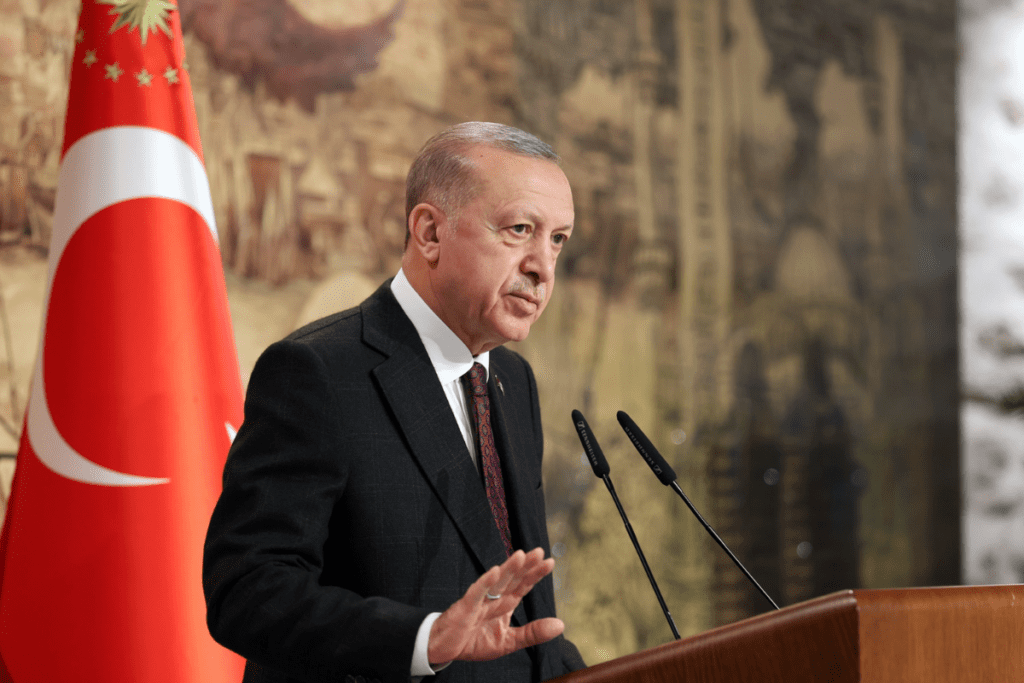Turkey will no longer use interest-rate hikes as a tool to control inflation, President Recep Tayyip Erdogan said, arguing measures he introduced this week had taken just a day to stabilize the lira.
Erdogan made his televised remarks before joining a closed-door meeting in Istanbul with economists and academics to listen to their proposals on the economy. Treasury and Finance Minister Nureddin Nebati, Central Bank Governor Sahap Kavcioglu and the head of the country’s banking regulator also attended.
“We’ve put aside the classical understanding of economics that keeps inflation under control with high interest rates,” Erdogan said. The government is now focusing on expanding the economy through investment, employment, production, exports and a current-account surplus, he said.
The central bank has slashed its benchmark interest rate since September in a series of cuts encouraged by Erdogan. The moves sent the lira into a tailspin, but the president has stuck to his ground, vowing to turn Turkey into a high-investment economy through cheaper borrowing.
On Monday, officials rolled out a series of extraordinary measures to support the plunging currency, which at that point had shed more than 50% of its value against the dollar this year.
The lira regained some of its heavy losses as details emerged of a new deposit tool that protects savers against currency depreciation.
“We’ve seen that the currency bubble disappeared in one day with the package of measures,” Erdogan said Friday. “We will witness a different economic climate through summer once the financial stability is ensured.”
The president has long held the unorthodox view that higher borrowing costs fuel inflation by forcing producers to pass on costs to consumers. He’s doubled down on the theory, and taken steps to boost growth, as an economic slowdown during the pandemic began to strip away support for his ruling party ahead of 2023 elections.
Despite this week’s gains the lira is still about 26% weaker from Sept. 23, when the central bank started cutting interest rates. It remains the worst performer among emerging market currencies against the dollar this year, with a slump of around 36%.
Inflation accelerated to more than 21% in November, with many of the poorer Turks who form Erdogan’s support base reeling under fast-rising prices.
(Except for the headline, this story has not been edited by The Finance World staff and is published from a syndicated feed.)

